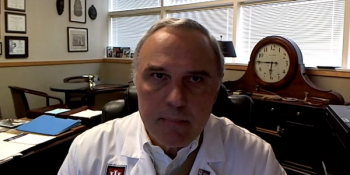
The American Journal of Managed Care® (AJMC® ) interviewed Martha Gulati, MD, cardiologist at Banner – University Medicine Heart Institute, on findings of eicosapentaenoic acid (EPA) levels in relation to cardiovascular outcomes and smoking cessation with e-cigarettes. These studies are part of the 2020 American College of Cardiology / World Congress of Cardiology Virtual Experience.








